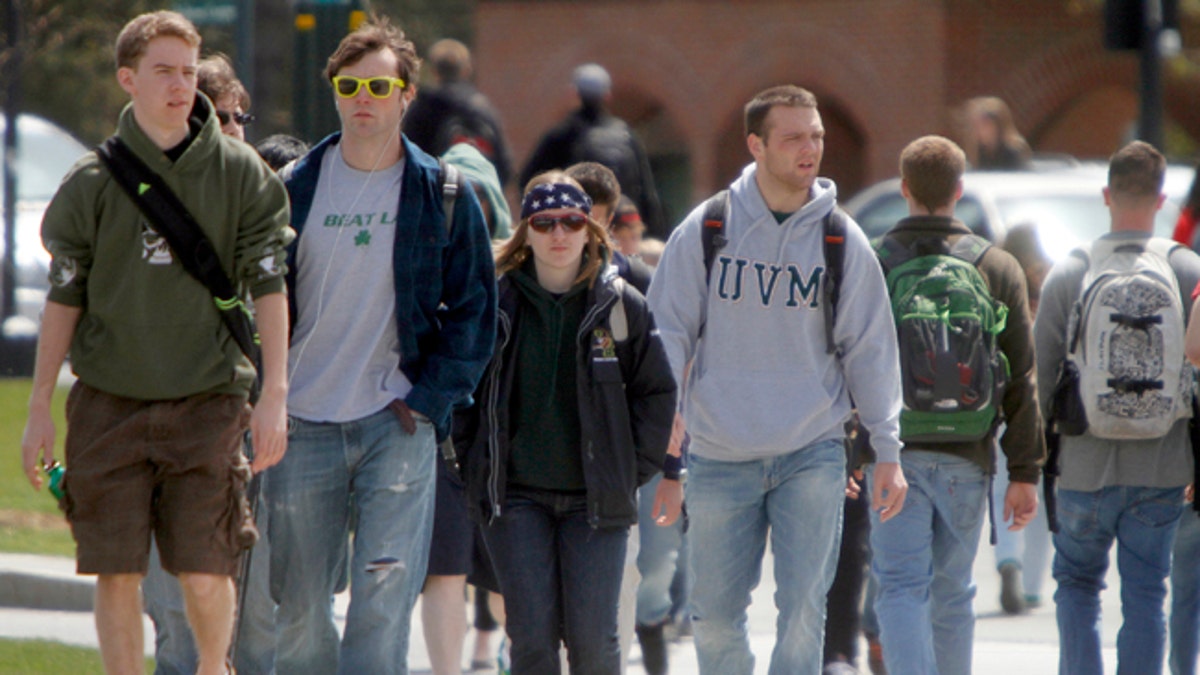
Students walk across campus at the University of Vermont on Monday, April 30, 2012 in Burlington, Vt. U.S. Rep. Peter Welch is compiling stories about student debt. Welch was at the University of Vermont on Monday where he met with students, some of whom are working multiple jobs and studying full time as they accumulate student loan debt. In Vermont, almost 70 percent of college graduates have an average of $30,000 in debt. (AP Photo/Toby Talbot) (AP)
Relatively few immigrants have availed themselves of in-state tuition measures that have passed in their state, Politico is reporting.
At the University of Connecticut, which has about 18,000 students, for example, slightly more than 30 undocumented students have enrolled, the website said.
Some states report that only a few dozen students have enrolled in public colleges since they passed the law – which allows undocumented immigrants to attend at rates charged to other residents – and others report about 200, Politico said.
One of the key reasons for the underwhelming response to the change in laws is that while they reduce the tuition for undocumented immigrants from out-of-state to in-state rates – in most cases slashing the fees in half – the students remain ineligible for government-subsidized financial aid, experts said.
“Some states wonder whether there will be an effect on other students,” Tanya Broder, an attorney with the National Immigration Law Center, was quoted as saying by Politico. “And the state isn’t really cheated out of revenue because the number of students affected is small. In each state, it’s just a few dozen or few hundred undocumented immigrant students.”
Proponents of in-state tuition laws argue that young undocumented immigrants who were brought as minors should not be penalized for the decisions of their parents to live illegally in the United States.
Several bills in Congress have sought to give these immigrants a path to legalization on that principle, but have failed.
“We’re already investing in these children, and if we drop them out of the system, that’s a lost investment on our part,” said California state Sen. Ricardo Lara, according to Politico. “Because guess what? They’re not going back to a country that they don’t know.”
President Barack Obama last year issued an order giving the immigrants deferred action, which protects them from deportation for two years – or until 2014 – and allows them to obtain work permits and Social Security numbers.
Opponents of in-state tuition laws have argued that they give people here illegally a privilege denied to people who are here legally but who live in other states. They say it is wrong to expect a legal resident to pay twice the cost of someone who lives in the state, while allowing people who are here illegally to pay the lower rate.
Follow us on twitter.com/foxnewslatino
Like us at facebook.com/foxnewslatino




